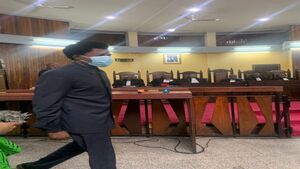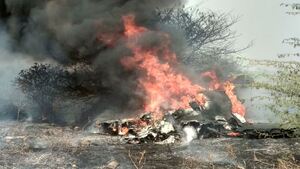This week, 75 DRC soldiers are on trial for abandoning their posts amid an advance by the M23 rebel group, which the DRC government alleges is backed by Rwanda. However, the charges extend beyond desertion, accusations of rape, murder, and looting have surfaced, further complicating an already dire situation.
Among the most serious allegations is the killing of ten civilians, including seven individuals who were sitting in a bar. Reports suggest that some of the accused soldiers also took part in summary executions in the village of Ecosia, approximately 20 kilometres from Bukavu, the capital of South Kivu province.
The trials, held under DRC military justice, have sparked concerns among locals, who fear for their safety as the army struggles to maintain control.
The M23 rebel group, a longstanding militant faction, has intensified its offensive in recent months, leading to mass displacement and civilian casualties.
The trial of the soldiers raises significant questions about the state of the DRC military, particularly its ability to protect citizens in conflict zones. The sight of government forces fleeing from the battlefield has caused panic among local communities, many of whom now question the reliability of their defenders.
Beyond the desertion charges, the trial also highlights the systemic issue of sexual violence in the conflict. While much of the focus remains on battlefield casualties, there is growing concern over the rampant use of rape as a weapon of war. Victims, often overlooked in broader discussions, face unimaginable suffering as violence against women continues unchecked.
Some of the soldiers on trial have defended their actions, claiming they were left without adequate support or resources to fight the rebels.
Others have suggested that their prosecution is part of a political agenda, arguing that the government is using them as scapegoats. However, DRC authorities insist that justice will be served, vowing to hold those responsible for war crimes accountable.
--ChannelAfrica--












